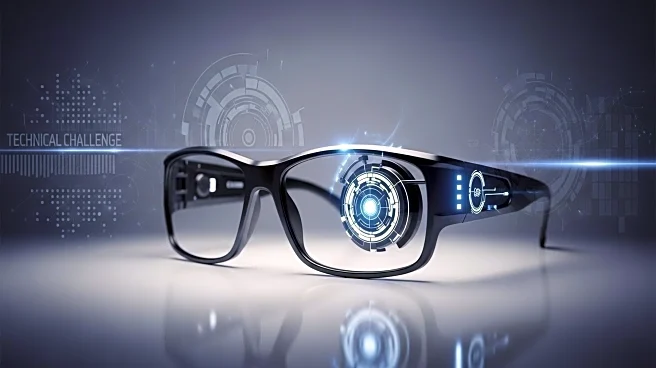What's Happening?
Rokid, a company based in China, has launched its smart glasses, known as Rokid Glasses, in the U.S. market. These glasses are equipped with a dual-micro LED display that offers features such as teleprompter functionality and real-time translation. The teleprompter feature allows users to read presentations seamlessly, while the translation capability can convert spoken language into text on the screen. Despite these promising features, the glasses face challenges, particularly with their voice assistant, which struggles to recognize English commands effectively. The device also includes a 12-megapixel camera for capturing images, although video recording capabilities were not tested during the demonstration.
Why It's Important?
The introduction of Rokid Glasses represents a significant step in the evolution of wearable technology, particularly in the smart glasses category. These devices have the potential to transform how users interact with digital content, offering hands-free access to information and communication tools. However, the technical issues, especially with the voice assistant, highlight the challenges in developing user-friendly interfaces for diverse linguistic backgrounds. The success of these glasses in the U.S. market could influence future developments in smart wearable technology, pushing companies to refine their products for better usability and functionality.
What's Next?
Rokid may need to address the voice assistant's limitations to improve user experience for English-speaking customers. This could involve software updates or further development to enhance language recognition capabilities. As the smart glasses market continues to grow, Rokid's competitors, such as Meta, may also seek to improve their offerings, potentially leading to advancements in augmented reality and wearable technology. The reception of Rokid Glasses in the U.S. could impact the company's strategy and product development moving forward.










